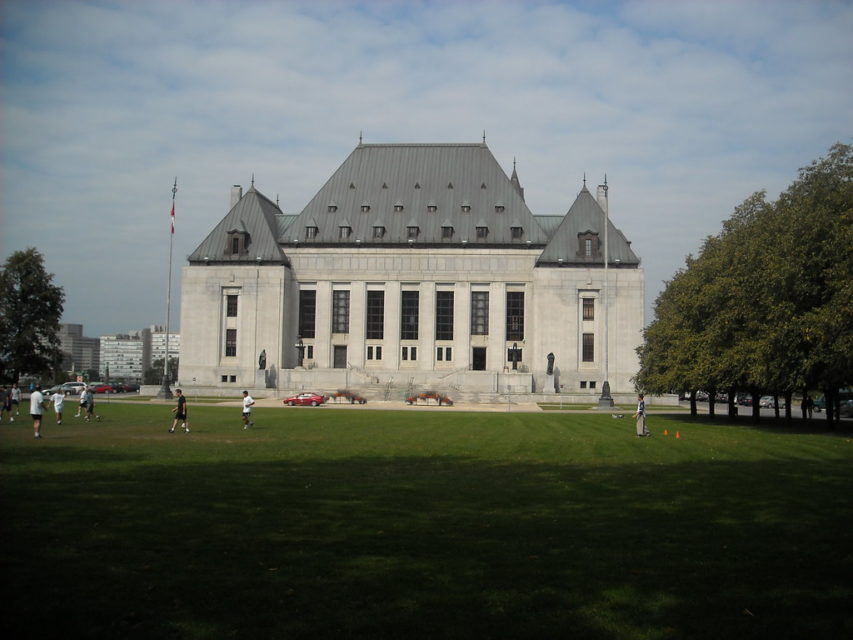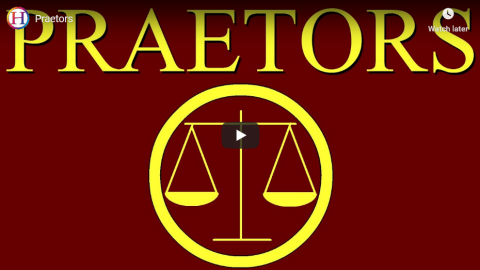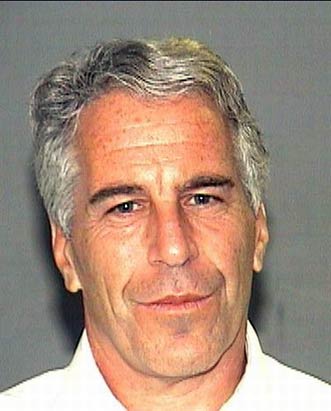Everyone raised in the Unites States over the last fifty years has been required to memorize the official dogma regarding Jim Crow laws. These were state and local laws that enforced racial segregation in the Southern United States. The official version preached to this day is that they were draconian restrictions on blacks preventing them from having a normal life. Modern blacks are told that their condition is the direct result of white discrimination against blacks via these laws.
Now, there is a debate as to the intent and the effect of these laws, mostly because the Left has re-imagined that period in American history. The official version of the Civil Rights era is a fantasy with little connection to reality. What is not under dispute is that these laws existed and they had a negative impact on blacks. Black institutions did not receive public support. Blacks were denied access to the legal system, which often denied them justice when the victims of white malfeasance.
The best argument against these sorts of laws is that they created a second class of citizens, as a legal construct. You cannot have democracy if you have second class citizens, as democracy assumes all men being equal before the law. If the effect of Jim Crow was separate and equal, then maybe they would fit into democracy. In reality, they were separate and unequal, even accounting for the differences in the races. Therefore, as a legal construct, they violated the ideal of equality before the law.
The Z Man, “The Jim Snow Laws”, The Z Blog, 2019-12-01.
March 7, 2020
QotD: “Jim Crow” laws
February 15, 2020
Theodore Dalrymple on the death penalty
From the New English Review:

“Tombstone Courthouse State Historic Park” by August Rode is licensed under CC BY-NC-SA 2.0
I happened to read a book published in 1965, the year Britain legislated to end the death penalty, titled Murder Followed by Suicide, by the distinguished criminologist, D.J. West. For forty years up to that date, about a third of homicides had been followed by the suicide of those who committed them.
Most people who committed homicide followed by suicide were highly disturbed psychologically, if not outright mad. For example, in killing their families they imagined that they were saving them from a worse fate. They were not the kind of people who would be deterred by anything, including the death penalty.
Here was a natural experiment. I hypothesized that if the death penalty acted as a deterrent, the homicide rate would increase but the proportion of homicide followed by suicide, which in absolute numbers would remain more or less the same, would decrease. My friend, the criminologist David Fraser, looked at the actual figures and found that this was indeed the case. Some sane people who might otherwise be inclined to kill managed to control themselves knowing that they might be executed if they did.
For the death penalty to deter, it was not necessary for it to be applied in every case. Although the death penalty for murder was mandatory in Britain, it was commuted in nine cases out of ten. All that was necessary for it to deter was that execution was a real possibility. We shall never know whether the death penalty would have deterred even more if it had been applied more rigorously.
Does its deterrent effect, then, establish the case for the death penalty, at least in Britain? No, for two reasons. First, effectiveness of a punishment is not a sufficient justification for it. For example, it might well be that the death penalty would deter people from parking in the wrong place, but we would not therefore advocate it. Second, the fact is that in all jurisdictions, no matter how scrupulously fair they try to be, errors are sometime made, and innocent people have been put to death. This seems to me the strongest, and perhaps decisive, argument against the death penalty.
Against this might be urged the undoubted fact that some convicted murderers who have been spared death have gone on to kill again, and this will continue to be so. Victims of those who murder a second time are probably more numerous than those executed in error. Therefore, utilitarians might argue, even if mistakes are sometimes made, that the death penalty overall would save lives. (Let us disregard the fact that those murderers who go on to murder a second time would not necessarily have been executed after their first murder, for nowhere are all murderers executed.)
The argument holds only if utilitarianism is accepted as a true ground of ethics. But few of us would accept that it is. It might be that hanging the wrong person after the commission of a terrible crime would have a better social outcome than hanging no one at all, provided only that it was never publicly known that the wrong person had been hanged: but we would still be horrified at the prospect. Moreover, in practice, the execution of the innocent, once it is known, serves disproportionately to undermine faith in the justice system. And surely it is true that for the state to kill an innocent man is peculiarly horrific.
January 25, 2020
Cursus honorum – Praetors
Historia Civilis
Published 19 Feb 2015Patreon: https://www.patreon.com/HistoriaCivilis
Website: https://www.historiacivilis.com
Twitter: https://twitter.com/HistoriaCivilisMusic is “Sea” by Jahzzar (http://betterwithmusic.com)
July 13, 2019
Piling on the charges to encourage plea bargaining – modern policing at work
A recent local crime story included the following laundry list of charges for one of the accused:
Shaquille Lovell, 21, of Ritson Road South in Oshawa is charged with careless carry of a prohibited firearm, contravention of storage regulations, unauthorized possession of a firearm, possession of a firearm knowing its possession is unauthorized, possession of a loaded prohibited firearm, and possession of a controlled substance for the purpose of trafficking (cocaine).
He was found to be carrying a prohibited weapon (a handgun) and a controlled substance (cocaine). Those two offences should be more than enough to prosecute with strong chance of conviction. All the rest of the bafflegab charges appear to be piled on to encourage plea bargaining, because they’re literally peripheral to the main criminal activity the accused has been charged with.
Lawyers, especially legal aid lawyers, will encourage the accused to “bargain down” the charges — one of the reasons for so many separate charges being applied — to avoid the cost and delay of a full trial … and the risk of facing the full potential sentence. Even relatively well-to-do middle class people will be more likely to want to avoid a long, drawn-out legal battle because it might well cost them everything they own. Poor people don’t even have that much of an option.
Canadian law enforcement is continuing to follow down the path of the United States, where a 90% conviction rate is considered low. According to Statistics Canada, “In 2013/2014, 63% of all cases completed in adult criminal court resulted in a finding of guilt”, but also “The extent to which plea negotiations are utilized in Canada currently remains unknown.”
July 12, 2019
Mark Steyn urges caution when considering the Epstein case
It may make sense to avoid a rush to judgement, as the way the federal justice system works these days does not encourage a belief in its impartiality or, for that matter, its dedication to the concept of “justice”:
I am wary of saying anything too definitive re the Jeffrey Epstein case, because so much of the reporting is way too trusting of the federal prosecutors’ official narrative. Don’t get me wrong: I take it as read that he’s an industrial-scale pedophile, if only because it seems to be the only thing anybody knows about him – including how he made his billion dollars. He apparently requires three “massages” a day by underage girls. So, upon being informed that Mr Epstein was flying his “Lolita Express” around Africa with Bill Clinton, Kevin Spacey and a softcore porn actress called Chauntae Davies on board, I’m disinclined to accept the official explanation that this was an Aids-relief “humanitarian” mission.
Mug shot of Jeffrey Epstein made available by the Palm Beach County Sheriff’s Department, taken following his indictment for soliciting a prostitute in 2006.
Image via Wikimedia Commons.That said, as longtime readers know, I regard federal justice as appallingly corrupt, and so the sudden revival of Epstein’s prosecution is somewhat more than intriguing. First, and as often with prominent American cases, the details make no sense:
In a memo filed to the court, prosecutors outlined the scope of Epstein’s vast wealth to argue that he has the means to flee the country and escape prosecution, noting that he not only has homes in Manhattan, Palm Beach, New Mexico and Paris — with his Upper East Side townhouse, of which prosecutors are seeking the forfeiture, alone worth $77 million — but also owns a private island in the US Virgin Islands.
He also has three US passports, owns at least 15 vehicles and has access to two private jets, according to the memo.
I can understand how a rich man comes to have fifteen cars, but how pray, does one individual citizen acquire three US passports? And from a government supposedly on “orange alert” these last eighteen years.
Second, Epstein was the beneficiary of a ludicrously lenient federal plea deal a decade ago for exactly the same charges. So this would appear to be “double jeopardy”. Not so fast, say the feds:
It is well-settled in the Second Circuit [appellate court] that a plea agreement in one US Attorney’s office does not bind another unless otherwise stated.
Is that so? Thanks to that litigious loser Cary Katz, I’m more familiar with Second Circuit jurisprudence than I might otherwise wish. But I had no idea of the above. So apparently, when you enter into a plea deal with “the United States” that says things like “the United States, in consultation with and subject to the good faith and approval of Epstein’s counsel, shall select an attorney representative for…” and “if Epstein successfully fulfills all of the terms and conditions of this agreement, the United States also agrees that it will not institute any criminal charges against…”, the words “the United States” only apply to the United States that resides at 27 Ocean View Parkway, Miami Beach and not the United States that resides at 32b Rotting Wharf Lane, The Bronx. So forget double jeopardy; you could have demicentuple jeopardy. Who knew?
One more thing: it seems fairly obvious that Epstein is also a procurer for those whose appetites likewise run to schoolgirls. This is where the manifests of his airplane are at least somewhat inferential. Yet the new indictment is concerned only with “the New York Residence” and “the Palm Beach Residence” — and not the Lolita Express jetting well-heeled buddies to Paedo Island. Is this some cozy arrangement to ensure that Bill Clinton et al are excluded from the case?
June 13, 2019
May 23, 2019
The Supreme Court of Canada goes on a roadtrip
John Carpay explains why the Supreme Court’s junket in September isn’t a good idea:

“Supreme Court of Canada, Ottawa”by daniel0685 is licensed under CC BY 2.0
While hearing two cases in Winnipeg rather than Ottawa is a friendly gesture, the Court’s choice of which groups to meet with – and not meet with – in Winnipeg is necessarily a political choice. If you thought the Court would meet with Ukrainians and Germans (Manitoba’s two largest non-English ethnic communities), prisoners, seniors, taxpayer groups and English language rights activists opposed to official bilingualism, you would be wrong.
In fact, the Court has announced that it will meet with “indigenous communities, the francophone community, the legal community, and students.” What message does this send to the Canadian public, which wants an impartial court deciding on aboriginal claims? What does meeting with the francophone community in Winnipeg say in relation to the Court hearing a case about minority language educational rights? And what if university tuition payments were at the heart of a case that came before the SCC, with its Justices having met only with students, but not with taxpayers?
As Canadians, the Supreme Court judges already interact with the public in their private lives, in Ottawa and elsewhere. One could reasonably assume that the nine lawyers appointed to this Court each meet individually with various people regularly, on the basis of friendship, shared interests, or family obligations. The people with whom any one judge meets over the course of a year would likely not form a perfect microcosm of Canadian society, in terms of race, religion, political views, income, and level of education. This is to be expected, and there is nothing wrong with it, because the personal connections formed by any one judge are not publicly endorsed by the Court. Not so for these meetings of “the Court” as a whole in Winnipeg, which is what makes the Court’s exclusion of many groups worrisome.
Chief Justice Wagner would no doubt respond to the above by saying that he and his colleagues will do their very best to decide all cases impartially, regardless of which groups they chose to meet with (and not meet with) in Winnipeg. And he would be right.
But that doesn’t solve the problem. The Court has made a political decision to meet with francophones, not English language rights activists; lawyers not prisoners; students not seniors; aboriginals not Germans or Ukrainians. In view of the ancient and centrally important legal maxim, “Not only must justice be done; justice must be seen to be done,” the Court should not be making these political decisions in the first place, in order to avoid even the appearance of possible bias.
It’s bad enough that the Prime Minister is seen to be putting a thumb on the scales of justice, but much worse if the highest court in the land is perceived to be doing the same thing.
May 9, 2019
MV Asterix delivers for the Royal Canadian Navy and breach of trust charge is dropped
Amid rumours that the Trudeau government is contemplating dropping the charge against Admiral Mark Norman, Matthew Fisher retweeted a link to his article from last year, praising the ship and suggesting that it should be renamed in honour of the man who did everything he could to get the RCN’s only current replenishment ship to sea:
Aboard MV Asterix and HMCS Charlottetown – The Trudeau government would have fits, but the Royal Canadian Navy should consider renaming the MV Asterix the HMCS Admiral Mark Norman.
The controversial new replenishment ship, which entered service on time and on budget this past January, has been performing brilliantly for the navy during sea trials. That was the unanimous opinion of sailors on HMCS Charlottetown and on MV Asterix after a series of refuelling exercises with the Canadian frigate and American destroyers during a hunt for three U.S. nuclear subs that I witnessed recently in the Caribbean.
The only hiccup during the five-day war game was on the American side. The crew on one of the destroyers was unable to establish a good seal on the fuel probe Asterix sent over as the vessels sailed at 15 knots in a two-metre sea with about 30 metres of water between them. However, it only took about 10 minutes to fix the problem.
Vice-Admiral Mark Norman, who ran the RCN before becoming the military’s second-in-command, strongly supported leasing or buying Asterix. The admiral was suspended early last year and subsequently charged with breach of trust for allegedly violating cabinet confidences. He is accused of passing on information pertaining to doubts that the Trudeau government was believed to have had about leasing the vessel. Although there were strong signals that it wanted out of the deal, the government eventually decided to honour a contract that Davie had with the Harper government to lease Asterix for five years at will be a cost of $677 million,according to the Globe and Mail.
“I think the Asterix is fantastic,” said Chief Petty Officer 2nd Class Mark Parsons, the Charlottetown’s chief bosun’s mate, who oversaw two approximately hour-long, problem-free fuel transfers from the tanker to his warship. “We have missed that capability since (HMCS) Preserver was retired in 2014” because of electrical problems and corrosion.
Parsons’ opposite number on Asterix, CPO2 Steve Turgeon, served on the 48-year old Preserver until 2013. Since January he has been training four deck crews of 11 navy sailors each to handle refuellings. This has allowed Canada to once again be an independent blue-water navy after several years in which it depended on NATO allies and leased Chilean and Spanish navy tankers for fuel at sea. A fresh group of navy sailors has just begun training on the Asterix, which is participating with two Canadian frigates in the vast U.S.-led, 25-nation Rim of the Pacific naval exercise off Hawaii this month.
And on the legal front:
Just saw Admiral Mark Norman walk into Ottawa courthouse with his legal team. Andy Leslie, Liberal MP & retired three star general who was going to testify for Norman, gave the admiral a bear hug.Norman told media army: "it's a beautiful day."
It is for him but not for PM Trudeau— Matthew Fisher (@mfisheroverseas) May 8, 2019
Later in the day, the news was finally made official: the government has dropped the charge and Vice-Admiral Mark Norman wants his job back:
The newly exonerated Vice-Admiral Mark Norman says he was alarmed by the persistent belief among senior government officials that he was guilty, and that their false assumptions took a significant financial and emotional toll on him and on his family.
On Wednesday, prosecutors stayed the single criminal charge of breach of trust laid against Norman, a major victory for the senior naval officer who has always maintained his innocence in the face of allegations he leaked confidential information about a project to procure a supply ship for the Royal Canadian Navy. In announcing the decision, Crown prosecutor Barbara Mercier told the court it was necessary in part due to new evidence the defence produced in March.
“This new information definitely provided greater context to the conduct of Vice-Admiral Norman, and it revealed a number of complexities in the process that we were not aware of,” Mercier said. “Based on the new information, we have come to the conclusion that given the particular situation involving Vice-Admiral Mark Norman, there is no reasonable prospect of conviction in this case.”
She did not provide any details on what exactly that information was.
The announcement ends the two-year legal battle against the officer and heads off what would have been a politically explosive trial for the Liberal government in the middle of a federal election campaign.
A fascinating little detail is also reported:
[Admiral Norman only] learned from a reporter’s question that Defence Minister Harjit Sajjan had announced the government would pay for his legal fees. “Wow,” was all he could muster in response. In 2017, the Department of National Defence had denied Norman’s request for financial assistance, concluding he was likely guilty.
So even though they’re finally making the right gestures, they still manage to be as ungracious as humanly possible while doing so. It’s not the kind of reputation you’d want to encourage.
QotD: Respect for the law
Here one comes upon an all-important English trait: the respect for constitutionalism and legality, the belief in “the law” as something above the State and above the individual, something which is cruel and stupid, of course, but at any rate incorruptible.
It is not that anyone imagines the law to be just. Everyone knows that there is one law for the rich and another for the poor. But no one accepts the implications of this, everyone takes it for granted that the law, such as it is, will be respected, and feels a sense of outrage when it is not. Remarks like “They can’t run me in; I haven’t done anything wrong”, or “They can’t do that; it’s against the law”, are part of the atmosphere of England. The professed enemies of society have this feeling as strongly as anyone else. One sees it in prison-books like Wilfred Macartney’s Walls Have Mouths or Jim Phelan’s Jail Journey, in the solemn idiocies that take place at the trials of conscientious objectors, in letters to the papers from eminent Marxist professors, pointing out that this or that is a “miscarriage of British justice”. Everyone believes in his heart that the law can be, ought to be, and, on the whole, will be impartially administered. The totalitarian idea that there is no such thing as law, there is only power, has never taken root. Even the intelligentsia have only accepted it in theory.
George Orwell, “England Your England”, 1941-02-19.
May 3, 2019
The rarely used US Foreign Agent Registration Act (FARA)
Ron Paul wonders why Russian national Maria Butina got a harsher sentence under the Foreign Agent Registration Act than an actual foreign agent who was paid millions of dollars by the Iraqi regime under Saddam Hussein:
Russian gun rights activist and graduate exchange student Maria Butina was sentenced to 18 months in prison last week for “conspiracy to act as a foreign agent without registering.” Her “crime” was to work to make connections among American gun rights activists in hopes of building up her organization, the Right to Bear Arms, when she returned to Russia.
She was not employed by the Russian government nor was she a lobbyist on Putin’s behalf. In fact the Putin Administration is hostile to Russian gun rights groups. Nevertheless the US mainstream media and Trump’s Justice Department are treating her as public enemy number one in a case that will no doubt set the dangerous precedent of criminalizing person-to-person diplomacy in the United States.
The Foreign Agent Registration Act (FARA) was passed in 1938 under pressure from the FDR Administration partly to silence opposition to the US entry into World War II. While a handful of cases were prosecuted during the war, between 1966 and 2015 the Justice Department only brought seven FARA cases for prosecution.
Though very few cases have been brought on FARA violations, one of them was against Samir Vincent, who was paid millions of dollars by Saddam Hussein to lobby for sanctions relief without registering. He got off with a fine and “community service.”
Millions of dollars in unregistered payments from Saddam Hussein gets no jail time, while Butina gets 18 months in prison for privately promoting a cause most Americans support! How is this justice?
The US Justice Department is not even as tough on illegals who commit capital crimes in the US!
Unfortunately Maria Butina was in the wrong place at the wrong time. With the rise of the “Russiagate” hysteria, Butina’s case was seen as a useful tool by Democrats to push the idea that President Trump was put into office by the Russians. Plus, many of them are also hostile to our Second Amendment and to the National Rifle Association. So it was a perfect storm for Butina.
April 7, 2019
Rubin “Hurricane” Carter and the murders at the Lafayette Bar and Grill in Paterson, New Jersey
I was too young to know anything about Rubin “Hurricane” Carter except what I “learned” from listening to Bob Dylan’s “Hurricane” long after the events. In Quillette, Lona Manning recounts the story, which doesn’t agree with Dylan’s interpretation (but Dylan was far from the only journalist or celebrity to be fooled):
How many people who followed the BBC Radio 4 podcast series about Rubin “Hurricane” Carter were startled — or even outraged — when Carter was not triumphantly vindicated in the final episode?
In the small hours of June 17, 1966, two black men walked into a late-night Bar and Grill in Paterson, New Jersey and opened fire on the occupants. They left bartender James Oliver and patron Fred Nauyoks dead at the scene and mortally wounded a woman named Hazel Tanis, who would succumb to her injuries a month later. Another customer named Willie Marins lost an eye in the shooting but survived. Neighbors Patty Valentine and Ronald Ruggiero told police that they had seen two black males flee the scene in a white vehicle. This testimony was corroborated by petty thief Alfred Bello who walked past the dead and the dying to empty the cash register after the shooters had fled.
Half an hour later, Paterson police stopped middleweight boxer Rubin Carter and his companion John Artis in a car bearing out-of-state plates that matched the eyewitnesses’ description. A search of the car yielded a .32 and a 12 gauge shotgun, the weapons police later determined had been used in the shooting. Carter and Artis were eventually indicted by a grand jury and convicted of the Lafayette murders in 1967. Carter vehemently protested his innocence and his case became a cause célèbre after his 1975 autobiography found its way into the hands of Bob Dylan. Carter was retried in 1976, after the New Jersey Supreme Court ruled that the first conviction had been unsafe. Despite support from Dylan, Muhammad Ali and the New York Times, the two were convicted again. John Artis was paroled in 1981, and Carter was finally released in 1985 after the second conviction was overturned and prosecutors declined to try him a third time.
Sports reporters Joel Hammer and Steve Crossman spent 18 months researching and reinvestigating the case and promised listeners of the BBC’s podcast that they would provide the “full” and “true” story. Their in-depth look at the crime provides far more detail about the murders than can be gleaned from Bob Dylan’s 1975 protest song or the hagiographic 1999 Norman Jewison film starring Denzel Washington. Dylan accused the prosecution team of framing Carter for the slayings and called them “criminals in their coats and their ties” who were “free to drink martinis and watch the sun rise.” Crossman and Hammer are likewise very critical of the prosecution; for example, they think that Alfred Bello should never have been allowed to testify. How could the life of such a man, be in the palm of some fool’s hand? And they argue that the prosecution ignored — or perhaps even suppressed — an investigation into a very plausible suspect, Eddie Rawls (who is now deceased). But they stop short of calling it a frame-up and an attempt at judicial murder.
On the other hand, Crossman and Hammer think the “racial revenge motive” was a reasonable one. The very first newspaper accounts of the slaughter at the Lafayette Grill included the speculation that the murders were committed in revenge for the slaying, earlier that night, of black bartender Roy Holloway and this would also be the prosecution’s contention. That Crossman and Hammer now accept the plausibility of this theory is a significant concession to the prosecution’s version of events, not least because it was Judge Lee Sarokin’s rejection of this motive which led him to overturn the second conviction—the prosecution’s case, he ruled, had been based on “racism rather than reason.”
Coincidentally, on the front page of the East Bergen Record, under the murder story, there was a wire service article about Stokely Carmichael proclaiming “Black Power” at a rally in Mississippi, an event which marked the transition from the peaceful civil rights tactics of Dr. Martin Luther King to the radical activism of the Black Panthers. These two articles encapsulated all the elements of the Lafayette Grill case that continue to be debated over 50 years later. Why did someone walk into a working-class bar and slaughter the occupants? Was the black community in Paterson in a ferment that night because a white man blew off Holloway’s head with a shotgun? And what, if anything, did this have to do with the state of race relations in America at the time?
March 10, 2019
There’s something bigger at stake in the SNC-Lavalin affair than Trudeau’s career
Chris Selley explains why SNC-Lavalin is an example of Canada’s less-than-stellar record of holding corporations to account:
… University of Michigan law professor David Uhlmann argues in a 2016 paper, “criminal prosecution of corporations upholds the rule of law, validates the choices of law-abiding companies, and promotes accountability. … When corporations face no consequences for their criminal behavior, we minimize their lawlessness, and increase cynicism about the outsized influence of corporations.”
No kidding. And in a country like Canada, not to say a province like Quebec, it’s safe to say these lines of accountability and trust get severely tangled. Once a government deems any company “too big to fail,” whether it’s because of political donations or connections, or because its pension plan is heavily invested, or because it has acquired a creepy semi-sacred status among otherwise normal people — or indeed, because of an alleged 9,000 jobs — all these nice theories about the rule of law break down. That’s what we’ve been witnessing.
But there’s an even bigger breakdown going on that’s received far less attention. Employees allegedly behind Lavalin’s Libyan capers were criminally charged as well. Between them, former vice-president Sami Bebawi and former controller Stéphane Roy faced charges including defrauding the Libyan state, money laundering, violating UN sanctions, bribing Saadi Gadhafi — Moammar’s soccer-playing, Montreal-enjoying third son — and trying to extract him from Libya once it all kicked off in 2011.
Those charges were laid in February 2014. Last month, some against Bebawi and all against Roy were dismissed because the Crown didn’t manage to bring them to trial in five blessed years. In a scathing decision, judge Patricia Compagnone characterized the Crown’s behaviour as a perfect illustration of the “culture of complacency” and the “culture of delays” the Supreme Court had assailed in its landmark 2016 Jordan decision, which established empirical standards for the Charter right “to be tried within a reasonable time.”
It is an ever-more-curious mystery that Canada’s comprehensively screwed-up justice system never rises to the level of political crisis. In the first year after the Jordan decision alone, some 200 cases were thrown out on grounds of excessive delays. Some of the accused make the Friends of Moammar look like saints. They include alleged murderers, child molesters and drunk drivers.
The charges against SNC-Lavalin were laid in February 2015. More than four years later, we’re still fighting over whether to pursue them — and not, it must be said, in a way that makes us look like a terribly serious country. How nauseatingly fitting it would be if a court threw the case out before the feds even got a chance to decide what to do with it.
October 2, 2018
QotD: Legal plunder
Sometimes the law defends plunder and participates in it. Thus the beneficiaries are spared the shame and danger that their acts would otherwise involve … But how is this legal plunder to be identified? Quite simply. See if the law takes from some persons what belongs to them and gives it to the other persons to whom it doesn’t belong. See if the law benefits one citizen at the expense of another by doing what the citizen himself cannot do without committing a crime. Then abolish that law without delay — No legal plunder; this is the principle of justice, peace, order, stability, harmony and logic.
Frédéric Bastiat, The Law, 1850.
September 4, 2018
QotD: Law and morality
In the first place, it would efface from everybody’s conscience the distinction between justice and injustice. No society can exist unless the laws are respected to a certain degree, but the safest way to make them respected is to make them respectable. When law and morality are in contradiction to each other, the citizen finds himself in the cruel alternative of either losing his moral sense, or of losing his respect for the law — two evils of equal magnitude, between which it would be difficult to choose.
Frédéric Bastiat, The Law, 1850.
July 16, 2018
QotD: The Great Enrichment
Look at the astonishing improvements in China since 1978 and in India since 1991. Between them, the countries are home to about four out of every 10 humans. Even in the United States, real wages have continued to grow — if slowly — in recent decades, contrary to what you might have heard. Donald Boudreaux, an economist at George Mason University, and others who have looked beyond the superficial have shown that real wages are continuing to rise, thanks largely to major improvements in the quality of goods and services, and to nonwage benefits. Real purchasing power is double what it was in the fondly remembered 1950s — when many American children went to bed hungry.
What, then, caused this Great Enrichment?
Not exploitation of the poor, not investment, not existing institutions, but a mere idea, which the philosopher and economist Adam Smith called “the liberal plan of equality, liberty and justice.” In a word, it was liberalism, in the free-market European sense. Give masses of ordinary people equality before the law and equality of social dignity, and leave them alone, and it turns out that they become extraordinarily creative and energetic.
The liberal idea was spawned by some happy accidents in northwestern Europe from 1517 to 1789 — namely, the four R’s: the Reformation, the Dutch Revolt, the revolutions of England and France, and the proliferation of reading. The four R’s liberated ordinary people, among them the venturing bourgeoisie. The Bourgeois Deal is, briefly, this: In the first act, let me try this or that improvement. I’ll keep the profit, thank you very much, though in the second act those pesky competitors will erode it by entering and disrupting (as Uber has done to the taxi industry). By the third act, after my betterments have spread, they will make you rich.
And they did.
Dierdre N. McCloskey, “The Formula for a Richer World? Equality, Liberty, Justice”, New York Times, 2016-09-02.








